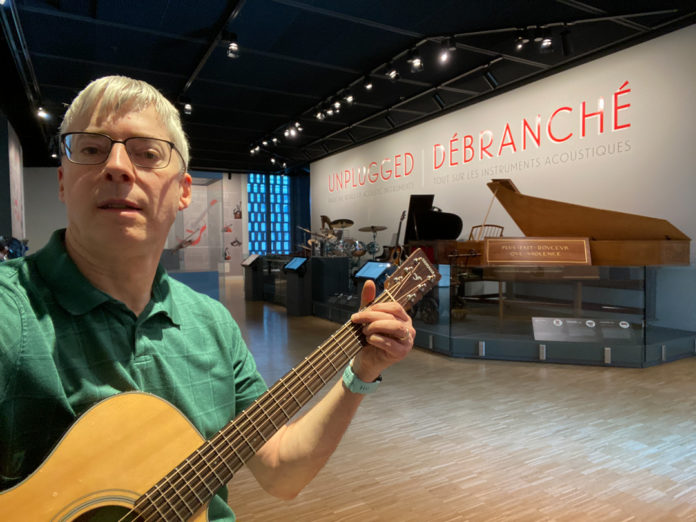Professor Eric Spalding is an associate professor in the School of Culture, Media, and Society at UFV. He is currently on a year-long sabbatical working on various projects and will be returning in the Fall 2022 semester. He has been at UFV for 28 years and holds a doctorate in communications. He began his journey in 1994 as a part-time instructor before becoming a full-time faculty member in 1998. He recently agreed to sit down with The Cascade to discuss his current projects.
Since you are on sabbatical, are there any projects that you are currently working on that you’re passionate and excited about?
The sabbatical is a real perk of this job and I must say that I consider myself fortunate to have this job where I get to talk about in class the things that I’m most interested in. With regards to the sabbatical, indeed, this is my third sabbatical. I think it’s every eighth year that you can apply to get a sabbatical. And in return for getting the sabbatical year off, in this case, you promise to to accomplish certain tasks. And so, I promised that I would write two articles; they’re both going to be on popular music with a Canadian focus. I’m [also] a guest editor for Scholarly and Research Communication for a special issue. That’s going to be about communicating scholarly knowledge through online videos.
I’ve been doing a lot of copy editing and translation work for the Canadian Journal of Communications, and I’ve been doing this since the 1990s. I do all the copyediting for the French language submissions, and that’s many of the abstracts for the journal. I’d like to brag that I’m the only author who’s had fresh material in every issue of the Canadian Journal of Communication since the 1990s — almost every issue. I am a certified member of the Society of Translators and Interpreters of British Columbia, and I have been since the 1990s. I’ve done a lot of translation work over the past 25 years.
Are there any projects directly connected to UFV that you can talk about?
Nicola Mooney is an Anthropology instructor in my department, and we are planning to team teach a course this fall for the first time on Punjabi popular culture. I feel that she’s really the person who’s got the in-depth long-term exposure to Punjabi popular culture. I consider myself more of a fan and perhaps playing more of a supporting role towards what she’s doing. It’s going to be quite exciting. And I’m going to try to immerse myself even more in Punjabi popular culture in the forthcoming months to prepare for this course.
How did you both decide to collaborate on this project?
Nicola Mooney knows that I’ve cultivated an interest in Punjabi popular culture for going on ten years now. We talked about it and she thought it might be a good idea to get me to collaborate with her on developing this course because it’s going to be an ANTH / MACS course, and it’s a way to bridge our two areas of knowledge: the anthropological perspective of exploring Punjabi culture and the [media and communications studies] perspective, which I’ll bring. [It will focus on] some of the underlying theories that we can apply to popular culture as it is made by and for Punjabi individuals.
Are there any other classes that you’d like to continue again, or create?
Well, I have my five classes that I like to teach and I’m used to teaching all of them for at least ten years now. I really like to teach the same classes over and over again, in the sense that I can develop my confidence about the material over a long period of time and make micro-adjustments to every course I teach as I teach them, based upon what seems to work and what seems to not work. My confidence level increases with these five courses, because I can anticipate the types of questions that students will ask. And over time, I feel more and more prepared to answer those questions.
When you return from sabbatical, what do you hope to accomplish at UFV?
My personal focus is always the courses that I teach. To be honest, everything else that I do for UFV is a subsidiary or supportive of teaching my courses. What I hope to accomplish during my sabbatical is tinkering with my courses and trying to update them. Now that I have a bit of free time, for instance, there is a new fourth edition of the journalism textbook for MACS 235 [Introduction to Journalism in Canada] and I’ve gone through all my PowerPoints to adapt them to the changes in the fourth edition. I hope that when I start in September, I’m ready to teach with updated course material and I can focus on trying to do my best as an instructor in those courses.
This interview was edited for clarity and length
Rachel is working towards a BA with a concentration in English and Theatre. She has been employed at The Cascade since Fall 2021 as a Staff Writer and a Jr. News Editor. Currently, she is the sectional News Editor and enjoys meeting and interviewing people as well as taking long walks in nature. Rachel also likes to stay up to date on the latest trends and informs students through her fashion column entitled Campus Fashion.



